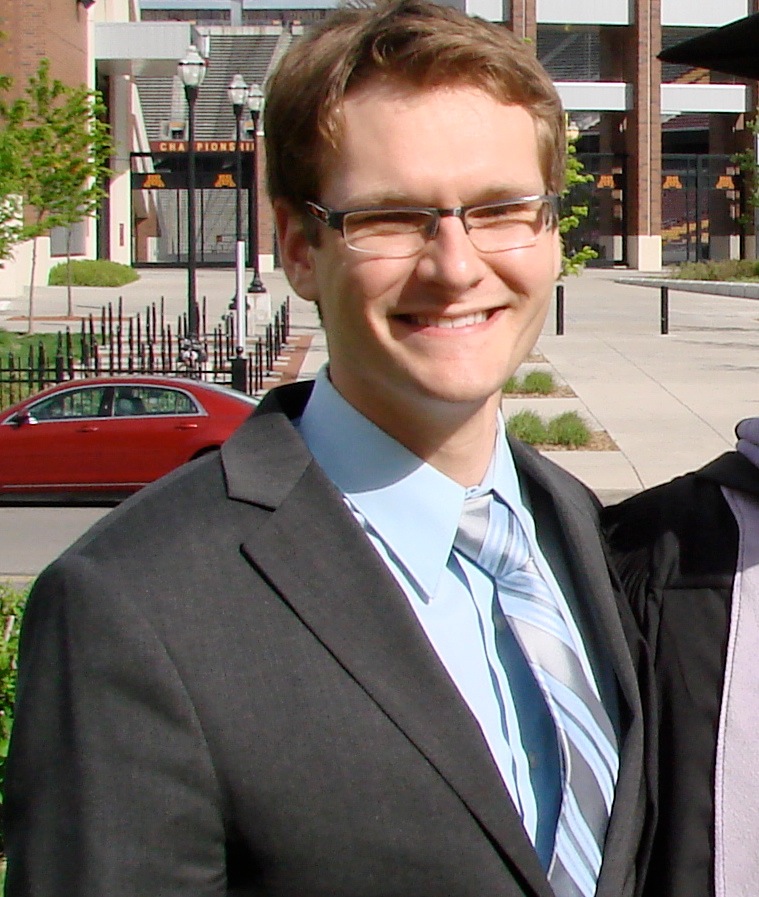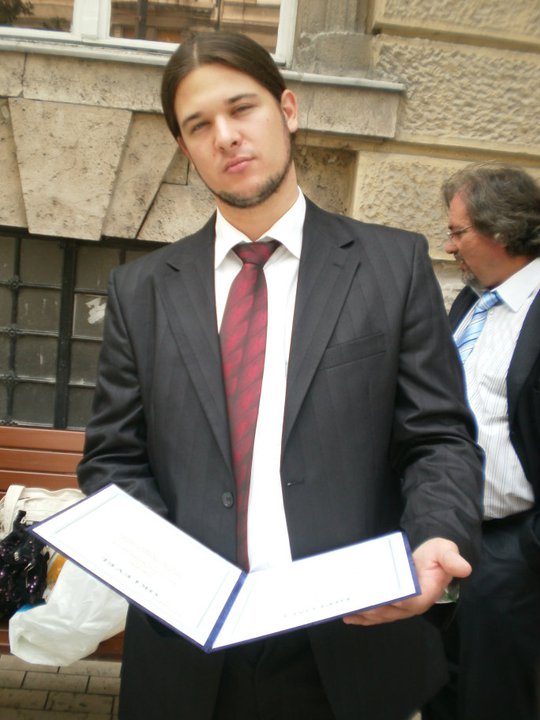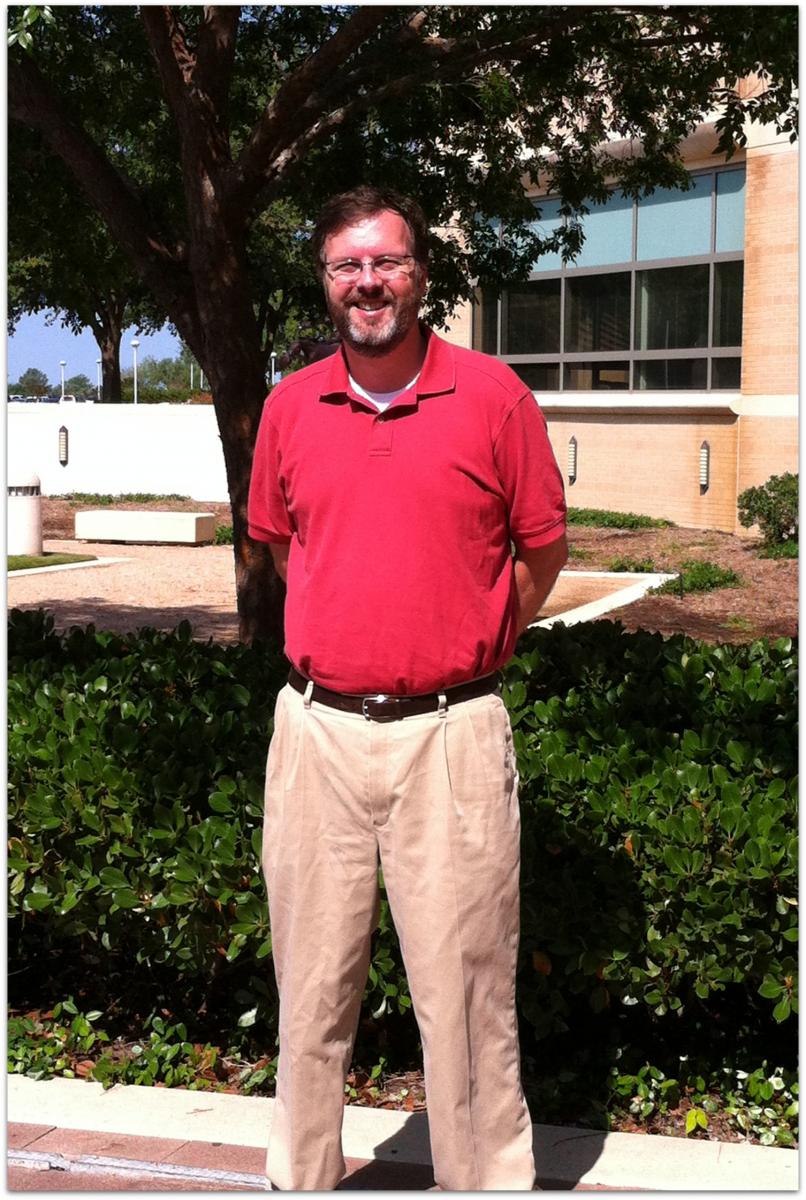|
Former Students The following former UNL Political Science PhD graduates who worked in conjunction with the Political Physiology Lab. Below, we briefly provide information about their accomplishments and what they have gone on to do. |
|
|
|
Amanda Friesen, Ph.D., is an assistant professor in the Department of Political Science at Indiana University-Purdue University at Indianapolis. She has published in Political Behavior, the Journal for Women, Politics & Policy, Social Science Quarterly and the Philosophical Transactions of the Royal Society of London--Biological Sciences. She also has been awarded grants from the National Science Foundation and University of Nebraska-Lincoln. Dr. Friesen's research interests include political psychology, religion and politics, family socialization, public opinion, gender and politics, behavior genetics, and biology and politics. Her dissertation focused on the intersection of religious and political beliefs within individuals and across generations (http://digitalcommons.unl.edu/poliscitheses/14/). More broadly, Dr. Friesen's research examines American political behavior – from conducting focus groups about the intersection of politics and religion across a wide range of congregations to examining the physiological correlates of political ideology and participation. Her research agenda focuses on three important long-term contributions: advancing understanding of the human condition, i.e., the reasons people believe and act the way they do; contributing to understanding the stability of beliefs across generations and, therefore, of the relative intractability of people’s positions on controversial issues; and integrating theories across the social and biological sciences in hopes of promoting usage of theories, methods and technologies from other disciplines to help answer other important questions. For more information on Dr. Friesen's research and teaching, go to her personal website, or email her at amfriese@iupui.edu |
|
|
Douglas R. Oxley Ph.D Dr. Douglas R. Oxley has an eclectic set of research interests and skills resulting from his twenty years of experience in academic, corporate, and nonprofit settings. His research interests include individual behavior in the context of the public policy process, information technology policy, and the influence of neurological and other physical factors on public decision-making. Dr. Oxley was recently awarded a grant from the Alfred P. Sloan Foundation to study the physical aspects of age discrimination in hiring. He received his M.A. in economics and his Ph.D. in political science from the University of Nebraska. At Nebraska, he was awarded the Presidential Fellowship during his final year of study. Dr. Oxley then took a postdoctoral position at Texas A&M in the Institute for Science, Technology, and Public Policy at the Bush School of Government and Public Service. He has taught courses on research methods, public policy, American government, public administration, and economics at Wyoming, Texas A&M and Nebraska. Prior to his return to the academy, Dr. Oxley worked for over ten years developing information systems for corporate and nonprofit organizations.
|
|
Carly Jacobs Ph.D |
|
|
Kristin Anderson |
|
 |
Karl Giuseffi Ph.D Student American Politics, Biology and Politics, Political Psychology, Public Opinion, Personality, Information Processing, Cognition, Emotion, and Political Communication Biopolitics is a new, relatively unexplored, subfield of political science that unites psychology, biology, and politics. This approach to political science holds the potential to provide more complete answers to questions that have long bedeviled traditional political science. Because physiological responses underlie all human action, they are almost certainly relevant to individuals' political attitudes, beliefs, and behaviors. |
 |
Balazs Feher Fields: Political Ideology, Biopolitics, Social Psychology, Network Science (SNA), Evolution Having majored in international relations and social psychology, my interests fall at the intersection of psychology, political behavior, social cognition, evolution, and network science (and I still maintain that these can be linked!). I firmly believe that an interdisciplinary approach and cooperation of scholars and students from various fields is a necessity in order to understand such complex phenomena as political behavior and ideological preferences. I plan to contribute to the work of the lab and thus the studying of biopolitics building upon my own background, as well as expanding from there with the help of the bright people (both faculty and fellow graduate students) I will have the pleasure of working with. |
 |
John Peterson Fields: Emotions and Politics, Biology and Politics, the Political Psychology of American Politics Politics is emotional. My research agenda focuses on differences in emotional responses to political stimuli. The thing that angers one person politically may only lead to apathy in another person. By examining individual differences at biological, psychological, and sociological levels I hope to better understand the nature of political discord. |
 |
Frank Gonzalez Fields: American Politics, Political Psychology, Biology and Politics Frank is a PhD student in the department of Political Science at UNL. He received a Master of Arts in Political Science at UNL, and a Bachelor of Arts in Psychology with a minor in Political Science from the University of Delaware in 2011. Frank studies political psychology broadly with a focus on utilizing biological and psychological methods to understanding how people place themselves in groups in society, and the impact of group-related attitudes and behaviors on political opinions and actions. His current projects address range of topics including how outgroup prejudice and ideological values interact to influence policy attitudes, how liberals and conservatives process political and non-political information, how people form attitudes about transnational policies, and why people support or oppose income inequality. The methods employed in these projects include analyses of existing nationally representative survey data, original survey experiments, content analysis, analyses of implicit attitudes and physiological activity, and cognitive studies related to attention and memory. Frank's research strengths lay primarily in experimental design and quantitative methods. |
 |
Tim Collins Ph.D Student Through the work being done at UNL on the biological origins of political attutides and behaviors and physiological and behavioral outputs thereof, we are constantly improving our understanding--as a discipline--of why and how people hold the beliefs they do. I greatly admire our department's intellectual makeup and curiosity, and the fact that we are regularly driving toward a larger understanding of our very special species and civilized body politic. |

